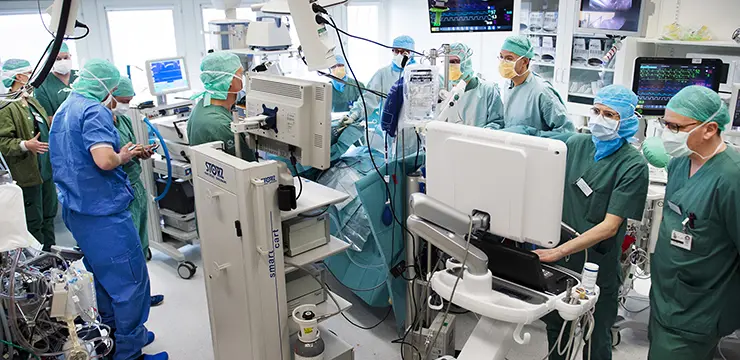Centralisation of heart transplantations improved patient outcomes

In 2011, all heart transplantations in Sweden were concentrated in two centres: Skåne University Hospital in Lund and Sahlgrenska University Hospital in Gothenburg. The aim was to enhance patient safety and increase cost-effectiveness by leveraging the benefits of larger, more specialised centres.
In a registry study, researchers from Skåne University Hospital, Lund University, Sahlgrenska University Hospital, and the University of Gothenburg analysed data from the Swedish Thoracic Transplant Register, Swedeheart, and the Scandiatransplant Register. They looked at heart transplants between 1 January 2001 and 31 December 2020, covering 815 patients. They used statistical methods to adjust for factors affecting post-transplant mortality and compared the results from the ten years before and after centralisation.
The findings show that survival rates for patients waiting for a heart transplant improved significantly after centralisation, even though waiting times became slightly longer.
"The study showed a decrease in mortality for patients on the transplant waiting list, from 8.3% to 3.2%. The risk of dying within a year after the transplant also dropped by 64%. Early mortality, within the first 30 days post-transplant, fell significantly from 9% to 2%," says Grunde Gjesdal, consultant in cardiology and pulmonology at Skåne University Hospital, researcher at Lund University, and lead author of the article in The Journal of Heart and Lung Transplantation.


